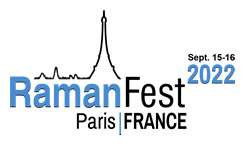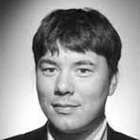 |
| INVITED |
|
 |
| . |
|
|
Anthony Boulanger
GreenTropism, France
Invited – Plenary Session
Gratuated from AgroParisTech engineering school and with a PhD in Biostatistics, Anthony started his carreer at Veolia group (Euronext : VIE, NYSE : VE) taking the responsability of the R&D for the near infrared spectroscopy and the command & control systems for the anaerobic digestion. His extensive work about real-time analysis of bioprocesses for transforming organic waste to energy and his research on spectroscopy systems adapted to these challenges, has shaped his vision on new domains that could benefit from these technologies and have incited him to found GreenTropism in 2014.
|
|
|
|
|
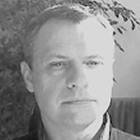 |
| INVITED |
|
 |
| . |
|
|
Igor Chourpa
University of Tours, France
Invited – Plenary Session
Igor Chourpa has completed his PhD from the University of Reims Champagne-Ardennes, France, in 1996. He joined the University of Tours in 1997. He is the director of Nanomedicine and Nanoprobes laboratory (EA6295). This interdisciplinary team develops bio-analytical methods and nanomedicine technology for drug delivery and disease diagnostics. His specific expertise domain is optical molecular spectroscopy (Raman, SERS, fluorescence and IR) and spectral imaging. He has published more than 100 papers in reputed journals and 2 book chapters. He has experience in coordination of national and international research projects and has been acted as expert for numerous calls. He is member of the editorial board of Pharmaceutics.
|
|
|
|
|
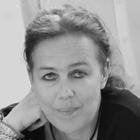 |
| KEYNOTE |
|
 |
| . |
|
|
Silke Christiansen
Fraunhofer IKTS, Germany
Keynote – Plenary Session
|
|
|
|
|
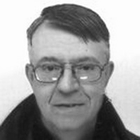 |
| INVITED |
|
 |
| . |
|
|
Philippe Colomban
Sorbonne Université, France
Invited – Plenary Session
|
|
|
|
|
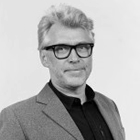 |
| INVITED |
|
 |
| . |
|
|
Arnaud Desmedt
CNRS – Univ. Bordeaux, France
Invited – Plenary Session
Arnaud Desmedt (PhD in physical-chemistry) is a CNRS director of research, currently heading the Molecular Spectroscopy Group at the Institute of Molecular Sciences (ISM UMR5255 CNRS – Univ. Bordeaux) and director of the French Hydrates Research Consortium (GDR2026 CNRS- IFREMER). After several years of researches in the field of inclusion chemistry, his main research interest for 15 years is dedicated to “hydrates sciences” by using advanced spectroscopies towards fundamental investigations and new promising applications. He developpes approaches ranging from the synthesis of samples to their spectroscopy investigations (with expertise in Raman/Neutron/X-ray scattering) under conditions reproducing their natural or usage environment (deep-ocean sea floor, cometary atmosphere, fuel cells, high-pressure, ultra-vacuum, low temperature, porous media, etc.) through complementary studies based on classical and ab-initio molecular modeling, NMR, diffraction, calorimetry, etc. These physical-chemistry investigations provide key information for addressing hydrate-related research challenges (e.g. geohazards and climate impact of naturally occurring gas hydrates, sustainable energy production and storage).
|
|
|
|
|
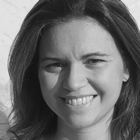 |
| INVITED |
|
 |
| . |
|
|
Barbara Fazio
CNR - LabSens Beyond Nano, Italy
Invited – Plenary Session
Barbara Fazio is senior researcher at the Lab SENS (Messina, IT) of Beyond Nano Research Infrastructure (Department of Physical Sciences and Technologies of Matter (DSFTM) of the Italian National Research Council (CNR)). Her expertise is on experimental physics (structure of matter and optical physics) with main interests in light scattering processes, Raman spectroscopy of complex systems and nanostructured materials for Plasmonics and Photonics, and development of optical sensors and optical setups. Her current main interest is on Raman light propagation in disordered media aiming to explore field enhancement mechanisms and interference effects. She has co-authored more than 100 papers in peer-reviewed journals, 6 book chapters and 2 US-Patents (1 world-wide extended). She has given 33 oral contributions as speaker to national and international workshops and conferences, 19 of which as invited speaker
|
|
|
|
|
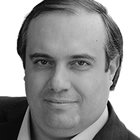 |
| PLENARY |
|
 |
| . |
|
|
Andrea Ferrari
University of Cambridge / CGC, UK
Plenary Talk
Andrea C. Ferrari earned a PhD in electrical engineering from Cambridge University, after a Laurea in nuclear engineering from Politecnico di Milano, Italy. He is Professor of Nanotechnology and the Director of the Cambridge Graphene Centre and of the EPSRC Centre for Doctoral Training in Graphene Technology. He is Fellow of Pembroke College, the American Physical Society, the Institute of Physics and the Materials Research Society. His research interests include nanomaterials growth, modelling, characterization, and devices. He was awarded the Royal Society Brian Mercer Award for Innovation, the Marie Curie Excellence Award, the Philip Leverhulme Prize, The EU-40 Materials Prize, The Royal Society Wolfson Research Merit Award. He is also the Chairman of the Executive Board of the EU Graphene Flagship
|
|
|
|
|
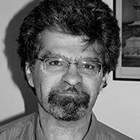 |
| INVITED |
|
 |
| . |
|
|
Bernard Humbert
IMN J Rouxel, France
Invited – Plenary Session
|
|
|
|
|
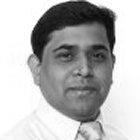 |
| INVITED |
|
 |
| . |
|
|
Naresh Kumar
ETH Zurich, Switzerland
Invited – Plenary Session
Naresh Kumar is a Senior Scientist and Lecturer in the Department of Chemistry and Applied Biosciences at the Swiss Federal Institute of Technology (ETH) Zurich. He is also a Visiting Professor in the School of Sciences, Hangzhou Dianzi University, China. Naresh carried out his PhD research in a collaborative project between the National Physical Laboratory (NPL), UK and Utrecht University, Netherlands on the “Development of Tip-enhanced Raman Spectroscopy (TERS) and its Application to Heterogeneous Catalysis Research” under the guidance of Prof. Bert Weckhuysen. Naresh joined NPL, UK as a Research Scientist in 2011 to work on the development and applications of TERS. In his research, Naresh has applied TERS to solve problems in diverse areas including heterogeneous catalysis, organic solar cells, polymer-blends, lipid membranes, distribution of small molecules within biological cells, nanoscale chemical imaging of solid-liquid interfaces and 2D materials such as graphene and single-layer MoS2, WSe2 and twisted bilayer MoS2. Additionally, Naresh has also worked on underpinning metrology to improve reproducibility of TERS measurements and extend plasmonic enhancement, lifetime, robustness and chemical inertness of TERS probes
|
|
|
|
|
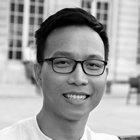 |
| INVITED |
|
 |
| . |
|
|
Van-Hoan Le
CEA-LETI, France
Invited – Plenary Session
|
|
|
|
|
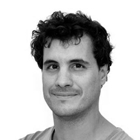 |
| INVITED |
|
 |
| . |
|
|
Alejandro Morata Garcia
IREC, Spain
Invited – Plenary Session
Alex Morata completed his PhD in Physics, in the electronics department of the University of Barcelona, focused in the development of functional ceramic materials and film deposition for energy and gas sensing devices. In 2010 he incorporated to the Nanoionics and Fuel Cells group at the Catalonia Institute for Energy Research (IREC). Since he joined IREC, he has assumed scientific supervision tasks (nine theses, two postdocs and numerous master thesis), contributed to five patents, and funding attraction and management activities, being IP of 10 public (National and European) and Industrial projects. He has been reference researcher in the institute in the lines of Solid Oxide Cells and nanoionics, and he has lead the research lines in micro-batteries and thermoelectrics. He has contributed to more than 100 scientific publications in prestigious journals of his field, worldwide-recognized conferences and several book chapters
|
|
|
|
|
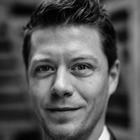 |
| KEYNOTE |
|
 |
| . |
|
|
Thomas Nuytten
IMEC, Belgium
Keynote – Plenary Session
Thomas Nuytten received a Ph.D. in physics from the KU Leuven in 2009 and subsequently worked as a Postdoctoral Researcher in the field of semiconductor nanostructures and energy conversion systems. In 2013, he joined imec in Leuven where his main interests include spectroscopic characterization of next-generation semiconductor technologies and EUV ultrafast phenomena. As Principal Member of Technical Staff he is responsible for the Raman and photoluminescence service and research at imec and the project management of the EUV laboratory AttoLab.
|
|
|
|
|
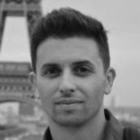 |
| INVITED |
|
 |
| . |
|
|
Ioannis Paradisanos
INSA/CNRS Toulouse, France
Invited – Plenary Session
|
|
|
|
|
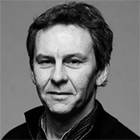 |
| KEYNOTE |
|
 |
| . |
|
|
Hervé Rigneault
Institut Fresnel, France
Keynote – Plenary Session
Hervé Rigneault is a physicist with >25 years experience in the development of advanced photonic tools for the applications in life sciences (single molecule detection, nanophotonics, nonlinear microscopy). Since 2000 he is leading the Mosaic group at Fresnel Institute ( www.fresnel.fr/mosaic). He current main interest are in (i) label free nonlinear microscopy for molecular imaging and (ii) nonlinear endoscopy. He has published over 240 papers, presented over 90 invited talks to international conferences and holds 16 patents in the field of molecular spectroscopy and imaging. |
|
|
|
|
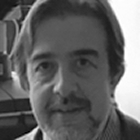 |
| INVITED |
|
 |
| . |
|
|
Andrea Mario Rossi
INRiM, Italy
Invited – Plenary Session
Andrea Mario Rossi currently he is head of Chemical Physical and Nanotechnologies program at the Italian Metrological Institute of Research (INRiM). He has received his doctorate in physics from the Polytechnic of Turin. In 1996 he received a scholarship “Marie Courie” and worked at the CIEMAT Madrid (ES) on solar cells. In 1999 he worked as a visiting researcher at the F. Julich (D) working on neuronal growth. In 2005 he worked three years as research associate at the University of Maryland and NIST (USA) working on the development of bio-sensors. Coordinates the Joint Network Proposal for the establishment of a European food safety network, Food-MetNet.
|
|
|
|
|
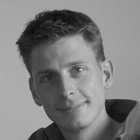 |
| INVITED |
|
 |
| . |
|
|
Pierre-Yves Sacré
University of Liège, Belgium
Invited – Plenary Session
Pierre-Yves Sacre studied pharmacy at Liege University (Belgium) and obtained his PhD in Analytical Chemistry from the same University. Since 2012, he is senior scientist at the laboratory of Pharmaceutical Analytical Chemistry of Prof. Philippe Hubert (GMP certified and WHO pre-qualified). His main research areas are focused on vibrational spectroscopy, hyperspectral imaging and the use of chemometrics for the analysis of medicines
|
|
|
|
|
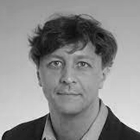 |
| INVITED |
|
 |
| . |
|
|
Iwan Schie
University of Applied Sciences - Jena, Germany
Invited – Plenary Session
Iwan W. Schie is professor for biomedical engineering at the University of Applied Science, Jena, where he is heading the group for biomedical optics. Additional he founded and leads the group for “Multimodal Instrumentation” at the Leibniz-IPHT in Jena, which is focusing on high-throughput Raman spectroscopy for cell analysis, multimodal optical systems for tissue characterization, development of fiber-probes, and high TRL-level instrumentation for medical in vivo applications.
|
|
|
|
|
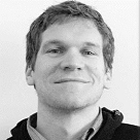 |
| INVITED |
|
 |
| . |
|
|
Ivan T. Lucas
CNRS - Sorbonne Université, France
Invited – Plenary Session
|
|
|
|
|
| |
|
|
